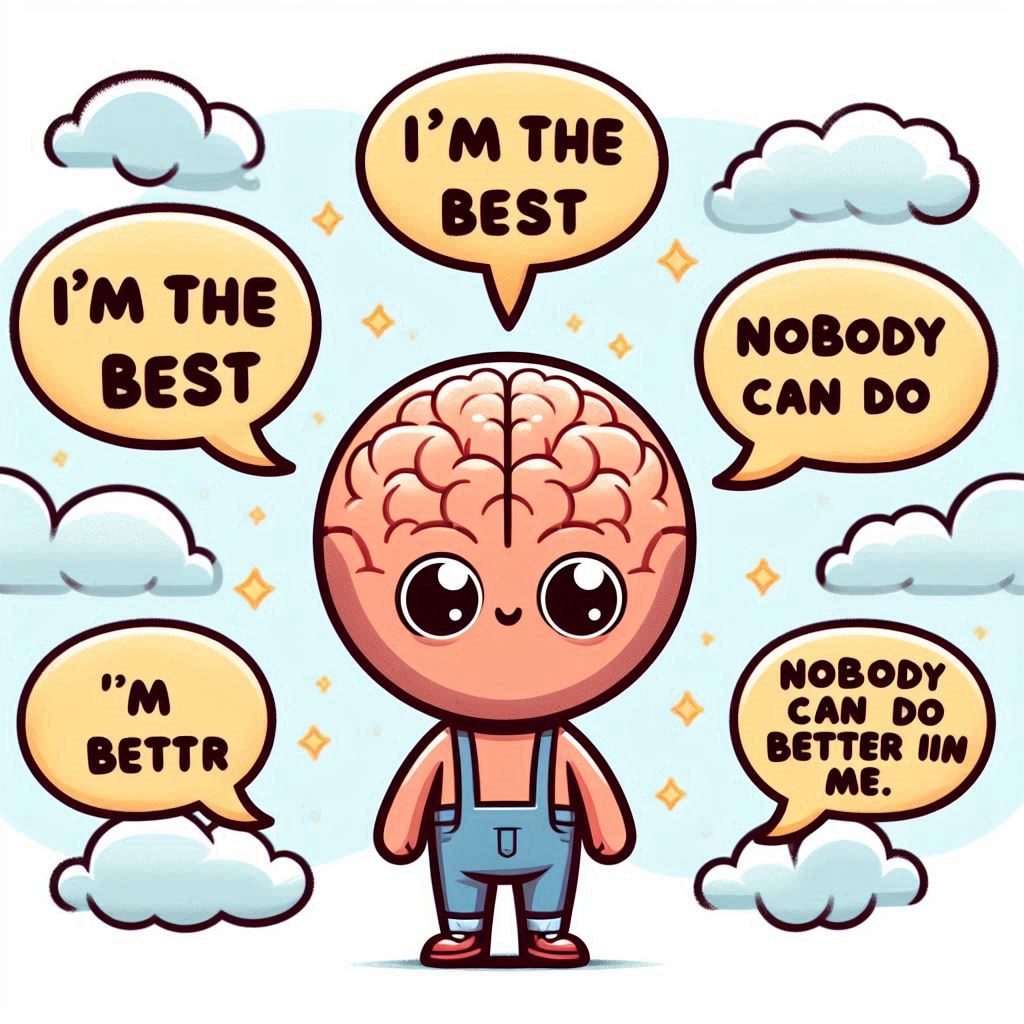An unhealthy ego can subtly damage relationships, hinder personal growth, and create emotional struggles. The ego is an essential part of our identity, giving us confidence and a sense of self-worth. However, when it becomes inflated or out of balance, it can lead to destructive behaviors. In this article, we’ll explore what an unhealthy ego is, the signs of an overactive ego, and steps you can take to manage it.
What Is the Ego?
The ego, according to psychology, is a part of our personality that helps us navigate the world. It serves as our conscious mind, making decisions and processing reality. When healthy, the ego allows us to function confidently and assertively, maintaining a balanced self-image.
But when the ego becomes unhealthy, it can either inflate or shrink, leading to a distorted sense of self. An overinflated ego leads to arrogance and self-centeredness, while a deflated ego can result in low self-esteem and insecurity. Both extremes are unhealthy and can interfere with relationships, work, and personal fulfillment.
Signs of an Unhealthy Ego
There are several signs that indicate an unhealthy ego, many of which can cause harm to your well-being and the people around you. Some of the common signs include:
1. Constant Need for Validation
People with an unhealthy ego often rely on external validation to feel worthy. They seek approval and attention from others and feel uneasy or angry when they don’t get it. This need for constant praise may cause them to manipulate situations or people to ensure they are at the center of attention.
2. Difficulty Admitting Mistakes
One of the clearest signs of an unhealthy ego is the inability to admit when you’re wrong. Instead of owning up to mistakes, individuals with inflated egos might blame others, justify their behavior, or refuse to acknowledge any faults. This prevents personal growth and can create tension in relationships.
3. Overly Defensive Behavior
When the ego is unhealthy, criticism, even constructive feedback, can feel like a personal attack. People with an unhealthy ego tend to react defensively or aggressively when criticized. This defensiveness often stems from deep insecurities masked by an outward show of confidence.
4. Inability to Accept Others’ Success
A hallmark of an unhealthy ego is the inability to celebrate other people’s success. Whether it’s a friend’s promotion or a colleague’s accomplishment, an unhealthy ego can make you feel envious or threatened by someone else’s achievements. This jealousy leads to resentment and may cause strain in relationships.
5. An Obsession with Being Right
Someone with an inflated ego has a strong desire to always be right, even at the expense of the truth or relationships. This obsession can create unnecessary conflicts as they may argue or debate endlessly just to prove a point, even when it doesn’t really matter.
6. Lack of Empathy
A swollen ego can hinder one’s ability to empathize with others. People with this issue tend to prioritize their own needs and feelings, often disregarding how their actions affect others. Over time, this lack of empathy damages friendships, partnerships, and family relationships.
How to Manage an Unhealthy Ego
Recognizing that your ego is becoming unhealthy is the first step to change. The good news is that it’s possible to manage and balance your ego with effort and self-awareness. Here are some steps to get started:
1. Practice Self-Reflection
Take a moment to reflect on your thoughts, actions, and responses. Ask yourself if you’re acting out of pride or insecurity. Journaling can be a useful tool for identifying patterns of unhealthy behavior and understanding your motivations.
2. Embrace Humility
Humility doesn’t mean thinking less of yourself; it means thinking of yourself less. Practice humility by acknowledging your limitations and learning from others. It’s okay to admit that you don’t know everything and that others have valuable insights to offer.
3. Listen to Feedback
Listening to feedback, especially when it’s critical, can be tough but beneficial. Try to approach feedback as an opportunity for growth rather than as an attack. This will help you develop emotional resilience and reduce the need for constant validation.
4. Focus on Empathy
To balance your ego, practice putting yourself in others’ shoes. Show compassion and understanding in your interactions. By focusing on the needs and feelings of those around you, you’ll develop stronger, healthier relationships.
5. Accept Your Flaws
No one is perfect. Accepting your flaws and understanding that they are part of being human can help reduce ego-driven behaviors. Instead of being defensive, work on improving your weaknesses without feeling the need to prove your worth to others.
6. Seek Professional Help
If your ego is causing significant issues in your life, seeking the help of a therapist or counselor can be highly effective. Cognitive-behavioral therapy (CBT) or mindfulness techniques can help you become more self-aware and manage ego-driven reactions.
The Benefits of a Balanced Ego
A healthy, balanced ego allows you to navigate life confidently without becoming arrogant or self-centered. When you have a balanced ego, you are secure in your worth, open to others’ perspectives, and able to handle criticism constructively. This balance fosters better relationships, increased emotional intelligence, and greater personal growth.
Conclusion: Recognize and Grow
An unhealthy ego can wreak havoc on your personal and professional life, but with self-awareness and effort, it can be managed. By practicing humility, empathy, and self-reflection, you can regain balance and strengthen your relationships. Remember, the goal isn’t to eliminate the ego, but to maintain a healthy one that serves you without controlling you.






